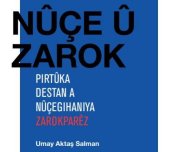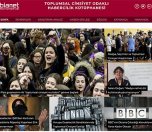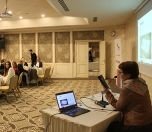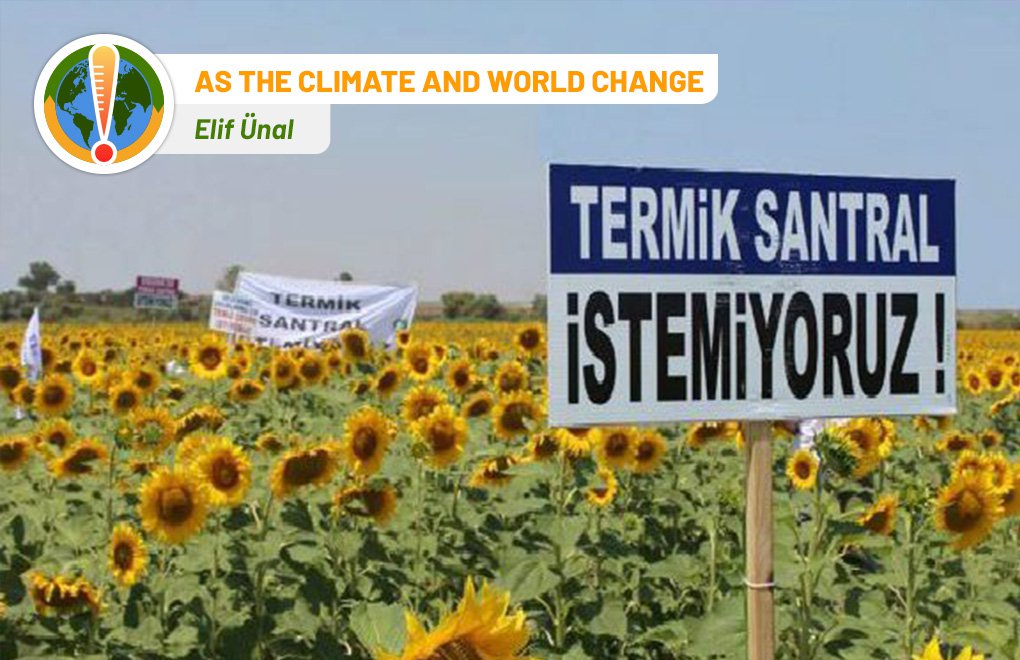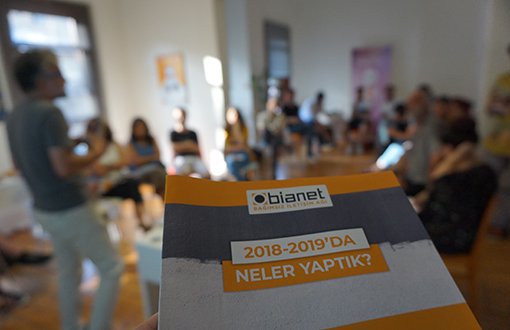Click to read the article in Turkish / Kurdish
bianet's fourth handbook on journalism, Judiciary in the News: Legal Journalism Handbook, has been published online in Turkish and Kurdish.
Our online handbook on legal journalism has been written by Şengün Kılıç Hristidis and edited by Gökçer Tahincioğlu.
Published in Kurdish under the title "Nûçe û Dadkirin/ Pirtûka Destan a Nûçegihaniya Pêvajoya Dadkirinê", the Legal Journalism Handbook has been translated into Kurdish by bia Kurdî editors Murat Bayram and Ferid Demirel. The book has been designed by MYRA.
Thanks to the online format of Judiciary in the News Handbook, it can be reached anytime on personal computers, notebooks, tablets and mobile phones. The handbook is not only a useful guide for journalists, but also for everyone who is interested in legal journalism.
Legal Journalism ProjectWe completed the Legal Journalism and Media Freedom Project in January 2018 - February 2019 with the support of the Swedish International Development Cooperation Agency (SIDA). The project was coordinated by Elif Ünal. In our round-table meeting that we organized with Civil Rights Defenders, we We would like to extend our thanks to the bianet team who has contributed to the publication of this handbook, the MYRA team for designing the book and everyone who has given us an insight with their opinions and suggestions. |
The fourth book in BİA Library
Judiciary in the News: Legal Journalism Handbook is the fourth book published by bianet on journalism. The previous three books by bianet on the issue were as follows:
Peace Journalism Handbook by Sevda Alankuş; Gender-Based Journalism Handbook by Çiçek Tahaoğlu and Elif Akgül; and the Child in the News: Child Focused Reporting Handbook by Umay Aktaş Salman.
CLICK - Legal Journalism Handbook (Turkish)
CLICK - Legal Journalism handbook (Kurdish)
Nadire Mater: It has never been so indispensable
The handbook starts with the "From the Foundation" foreword by IPS Communication Foundation Chair and Project Adviser Nadire Mater.
"Women and all oppressed/struggling people - and thus, the IPS and bianet - have very valid reasons to concern themselves about judiciary, impunity and reporting of these issues," Mater says in her foreword and adds: "Journalism which monitors rights has never been so indispensable in Turkey."
Şengül Kılıç Hristidis: I took 'under normal circumstances' as a guide
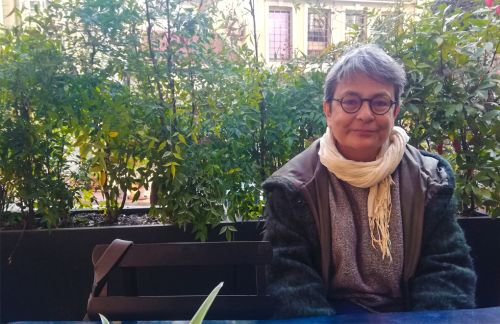
Expressing her concerns before starting to write the handbook, Şengün Kılıç Hristidis has stated that following:
"When the IPS Communication Foundation offered me to write a book on legal journalism, I was very happy at first. Then, after I started to work on the book, I realized that the black clouds over my head were multiplying. What would I tell the readers? At a time when there were so many unlawful practices in law, what rule or tradition would I refer to?"
Hristidis has shared the solution she came up with in following words: "After brooding over and over this issue, I finally found a way: U.N.C! I took the principle of 'under normal circumstances', which I remember from the chemistry lessons in high school, as my guide in writing this book."
What does the handbook contain?
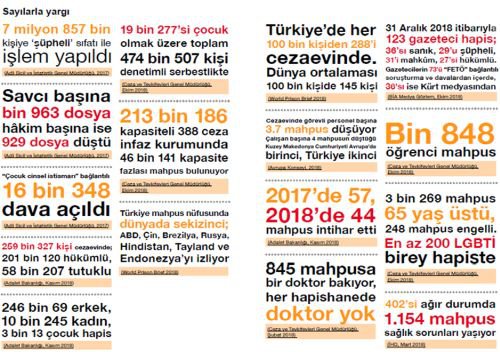
The 68-page online handbook on legal journalism provides information regarding the development and current state of legal journalism in Turkey in chapters of "Judiciary in Numbers", "bianet Guideline on Monitoring Hearings", "Notes to Reporters and Editors", "Process in Criminal Cases", "Law and News Language" and "Rights and Responsibilities."
Tahincioğlu: Legal journalism touches people's lives
Tahincioğlu, the editor of the book, has underlined that as "legal journalism directly concerns people's lives", it should be handled meticulously:
"A false news that you report might cause the person in question to be labelled, be stuck in a difficult situation or might change her or his life. This person might pay the price for the rest of her or his life due to your mistake. For that reason, technical knowledge is actually a must."
bia Kurdî editors on Legal Journalism Handbook
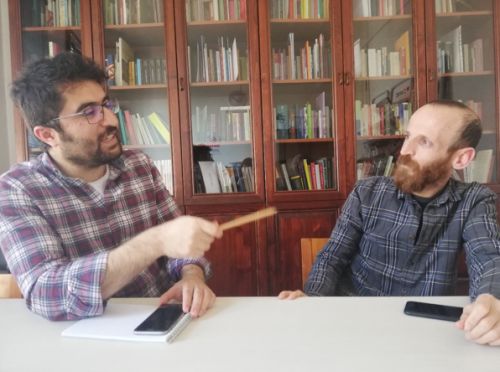
The handbook has been translated into Kurdish by bianet Kurdî editors Murat Bayram and Ferid Demirel.
Commenting on the handbook, Bayram has underlined that "it is a first in Turkey": "Since the Kurds do not have a state structure, their legal terminology also takes terms from Turkish. It is also the case for the Kurds in other countries: From Persian in Iran, Arabic in Syria, etc. Journalists do not have guides specially prepared for journalists to write legal news in Kurdish. This handbook is the first step taken in Turkey in that regard."
bia Kurdî editor Ferid Demirel has also commented, "Especially in the last couple of years, there has been an activity, a mobility in the field of judiciary in Turkey, which has an impact on not only the society as a whole, but on the press as well. I think that this handbook will fill a gap in that respect."
About Şengün Kılıç HristidisJournalist/Writer. She started journalism in 1986. She worked as a reporter, editor and news director in various newspapers, magazines, radio and TV channels. She wrote the books "Biz ve Onlar/Türkiye'de Etnik Ayrımcılık" (We and They: Ethnic Discrimination in Turkey), "Beyaz Bir Düş" (A White Dream), "Sinemada Ulusal Tavır/Halit Refiğ Kitabı" (National Attitude in Cinema: Halit Refiğ Book), "Erozyon Dede, Hayrettin Karaca Kitabı" (Erosion Grandfather: Hayrettin Karaca Book), "CHP'li Yıllar 1946-1992" (Years With CHP 1946-1992), "Hayatım Mücadeleyle Geçti/Kemal Kurdaş Kitabı" (I Spent My Life Struggling: Kemal Kurdaş Book), "Çayın 90 Yılı" (90 Years of Tea). She was born in Erzincan in 1963 and graduated from Gazi University. She continued studying in the Department of Opera at Hacettepe University, State Conservatory. |
(EÜ/EKN/SD)







